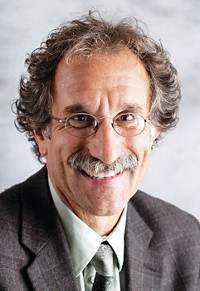Advertisement
Grab your lab coat. Let's get started
Welcome!
Welcome!
Create an account below to get 6 C&EN articles per month, receive newsletters and more - all free.
It seems this is your first time logging in online. Please enter the following information to continue.
As an ACS member you automatically get access to this site. All we need is few more details to create your reading experience.
Not you? Sign in with a different account.
Not you? Sign in with a different account.
ERROR 1
ERROR 1
ERROR 2
ERROR 2
ERROR 2
ERROR 2
ERROR 2
Password and Confirm password must match.
If you have an ACS member number, please enter it here so we can link this account to your membership. (optional)
ERROR 2
ACS values your privacy. By submitting your information, you are gaining access to C&EN and subscribing to our weekly newsletter. We use the information you provide to make your reading experience better, and we will never sell your data to third party members.
Education
Engaged student learning through the ACS-certified bachelor’s degree
by Thomas J. Wenzel, Chair, ACS Committee on Professional Training
October 16, 2017
| A version of this story appeared in
Volume 95, Issue 41
The National Science Foundation’s primary grant program that supports undergraduate curriculum development activities—Improving Undergraduate STEM Education—has two tracks, one of which is Engaged Student Learning. The program recognizes that passive forms of teaching and learning, such as lectures and “cookbook” laboratory experiments, do not promote meaningful learning among many students.
Research on how people learn supports the desirability of engaged student learning. These studies show that learning is a constructive process and is improved when learners properly connect a new concept to knowledge they already possess. Those who teach will realize that while lecturing, the instructor frequently makes connections for students by describing prior knowledge that informs new material—for example, how knowledge of atomic orbitals can help us construct visual images of certain molecular orbitals.
However, there are two drawbacks when the instructor makes the connection for students. The first is that students frequently misunderstand concepts, which compromises their ability to learn new and related knowledge. Without identifying and confronting these misconceptions, students do not learn new material.
The second drawback is that learning is more effective when learners have active roles in identifying their existing knowledge that relates to a new concept. Many students will misidentify what existing knowledge should be applied; their engagement in the identification process improves learning. In the classroom, this means that students should spend time engaged with their peers in a process of answering questions and explaining or justifying their answers to others. The instructor is a facilitator and, by engaging with smaller groups of students, can better determine whether they have misconceptions about prior knowledge and are applying the proper knowledge to new material. Effective use of engaged student learning improves learning of chemistry content.
Many features of the guidelines for the ACS-certified bachelor’s degree (www.acs.org/cpt) encourage the use of engaged student learning. Most important is the requirement that the undergraduate curriculum at ACS-approved programs incorporate the development of student skills. One skill specified in the guidelines is problem solving, which is defined as the ability to describe a problem, develop a testable hypothesis, design and execute an experiment, analyze data using appropriate statistical methods, understand uncertainties in experimental methods, and draw appropriate conclusions.
Instructional laboratories are an excellent place to promote problem-solving skills. A laboratory experience in which students follow a recipe is not going to develop the full range of problem-solving skills. Instead, students should be given open-ended investigations that promote independent thinking, encourage critical reasoning, and show chemistry as a scientific process of discovery.
Classroom activities also provide opportunities for students to develop problem-solving skills, provided they are given open-ended questions to work on with others. Another important skill involves using the chemical literature and managing information, which includes retrieving and critically evaluating sources.
Engaged student learning is necessary to develop written and oral communication, teamwork, and ethics, all of which are expected in the curriculum leading to an ACS-certified bachelor’s degree. The RAMP process (recognize hazards, assess and minimize risks, prepare for emergencies) should be taught in a manner that engages students in these tasks. Programs are required to promote a culture of safety throughout the undergraduate curriculum, something essential to those students continuing into careers in chemistry. Along with the expectation that programs develop these skills in their curriculum is the understanding that students be evaluated and given feedback that helps them improve these skills.
The guidelines also encourage participation in a mentored research project, the ultimate engaged student learning experience. Undergraduates can count research as an in-depth course and for 180 of the 400 hours of laboratory instruction beyond introductory chemistry needed for the certified degree.
A large majority of ACS-certified-degree recipients participate in research. The Committee on Professional Training, which administers the ACS approval program, desires curricula that develop skills in a progression throughout the entire curriculum.
Undergraduate chemistry majors pursue a variety of opportunities after graduation, including graduate and professional school, jobs in chemical industry or government, high school teaching, and careers in other private sector areas. Some of these career opportunities require a fundamental knowledge of chemistry; others do not.
Furthermore, few people now stay at one employer throughout their careers. The variety of chemistry graduates’ career choices, combined with the multiple opportunities many individuals pursue over a career, strengthens the need for the development of problem-solving skills.
Invariably, when I am asked to evaluate one of my undergraduates for graduate or professional school or an employment opportunity, the characteristics I am asked to evaluate or comment on are focused on these skills. Our challenge as educators is to develop an undergraduate curriculum that engages students throughout the classroom and laboratory, thereby developing these skills in a meaningful way.
Views expressed are those of the author and not necessarily those of C&EN or ACS.






Join the conversation
Contact the reporter
Submit a Letter to the Editor for publication
Engage with us on Twitter